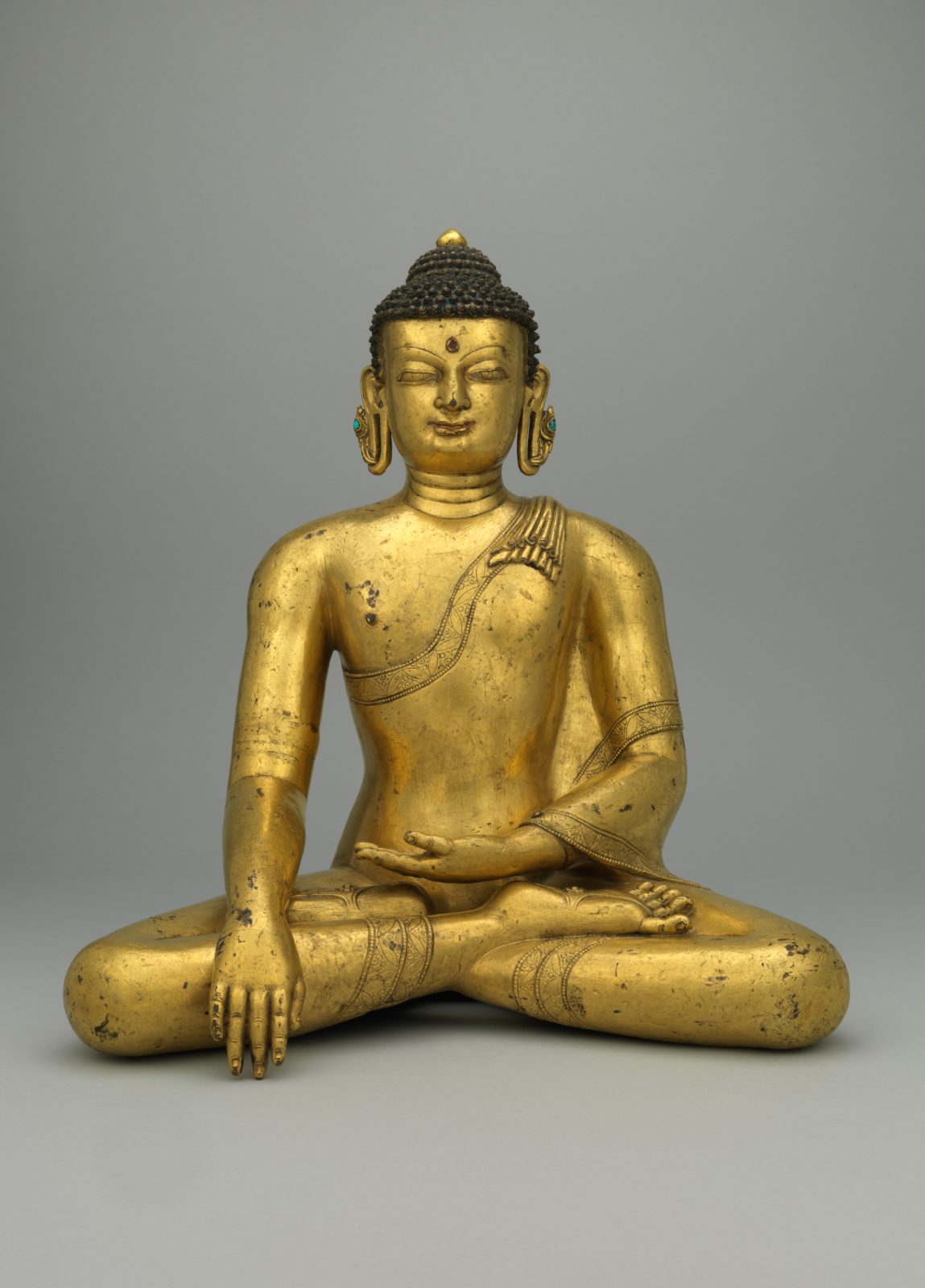
Buddha Shakyamuni; Karnali Basin, Khasa Malla Kingdom, Northwestern Nepal; 13th-14th century; Gilt copper alloy with inlay; Rubin Museum of Himalayan Art; C2006.24.1

Buddha Shakyamuni; Karnali Basin, Khasa Malla Kingdom, Northwestern Nepal; 13th-14th century; Gilt copper alloy with inlay; Rubin Museum of Himalayan Art; C2006.24.1
On May 21 Buddhists and others all over Nepal celebrate Buddha Jayanti, one of the holiest days on the Buddhist calendar. Commonly called the Buddha’s Birthday, Buddha Jayanti also commemorates the day Buddha Shakyamuni achieved nirvana and the day that he passed away into parinirvana at the age of 80. The Buddha and Nepal have an intertwined history and the Nepalese people celebrate the Buddha Jayanti through a number of traditions based on compassion and the pursuit of wisdom.
According to the Buddha’s life story, three events—the Buddha’s birth, enlightenment, and death—fell on the same day: the full moon of Vaisakha, a month found in the Indian calendar. On this day, Buddha Jayanti, Buddhists visit viharas (a Nepali and Sanskrit word for “monastery”) and make offerings to monks and sculptures of the Buddha. Monks also give lectures on the Buddha’s teachings, allowing those listening to be reminded of the values he taught. Certain Buddhists may also wear only white or abstain from eating meat in honor of the Buddha’s life. Another common practice is to buy and set free animals that were meant to be slaughtered.
In Kathmandu, Buddhists tend to gather at either Swayambunath or Boudhanath stupa, two of the largest Buddhist structures in Kathmandu. The stupas are illuminated with thousands of surrounding butter lamps while also being decorated with strands of electric lights, reminding the devotees of the light the Buddha’s teachings give to the world.
Though predominantly a Hindu country, Nepal has a special connection to the Buddha. He was born in Lumbini, which presently falls within the borders of Nepal. For this reason, most Nepalese will pay tribute to the Buddha even if they are Hindu, for they take national pride in being the “last birthplace” of one of the world’s great religious leaders. Now a popular pilgrimage site for Buddhists all over the world, Lumbini only came to international attention in the late 19th century. According to legend, the Buddha’s mother was walking through her palace gardens when she reached up to grab a branch. Once she grabbed the branch, the young Siddhartha came out of her side, took seven steps and declared, “This is the last life I will ever live.” Today Buddhists from all over the world visit Lumbini as an important pilgrimage site with many pilgrims visiting on Buddha Jayanti to pay special homage on the day of his birth.
Get the latest news and stories from the Rubin, plus occasional information on how to support our work.